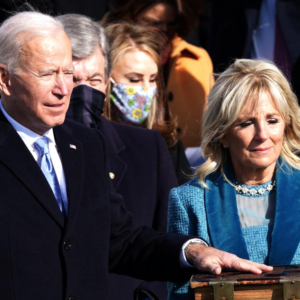Access to affordable healthcare has always been an important issue in the United States – but has taken center stage in recent years due to the passage of the Patient Protection and Affordable Care Act of 2010. The Affordable Care Act (ACA) has increased access to health insurance coverage for millions of Americans, ended the denial of services for patients, extended coverage for dependents to stay on their guardians’ insurance plans until age 26, and allowed those with pre-existing conditions to receive health coverage. As part of the ACA, the federal government set up a national health insurance exchange and created funding for all states to create their own health insurance exchanges and expand Medicaid access for low-income families. As of now, 25 states have chosen not to expand Medicaid to more low-income families in their states–including Georgia.
Fortunately, Georgians are standing up and making their voices heard. On February 20th, domestic workers, youth, and families rallied in Atlanta to highlight the need to expand Medicaid and called on legislators to take action. SPARK Reproductive Justice NOW and the National Domestic Workers Alliance Atlanta Chapter held a rally to call attention to the over 600,000 Georgians who could get access to affordable and quality health care if Medicaid were expanded in Georgia. So far, Governor Nathan Deal (R-GA) has refused to take the funds provided by the federal government for the expansion – fully funded for the first three years, 95 percent covered by the federal government until 2017, and 90 percent through 2020. This would total to about $14.5 billion in funds. The Medicaid expansion would give Georgians who earn between 100 to 400 percent of the Federal Poverty Level (between $11,490 and $45,960 per year) without insurance through their employer, access to health care coverage. It seems simple, but it has been an issue rooted deeply in bitter partisan division leaving families out in the cold.
Low-income families, people of color, and youth are disproportionately affected by the decision not to expand Medicaid. On February 17th, I had the distinct honor of meeting several youth leaders and domestic workers in Atlanta, Georgia to discuss the impact the lack of health care and insurance access has had on their families. They shared their experiences and plight in accessing healthcare, even after the implementation of the ACA. One young woman I met, Quita Tinsley, is a youth leader with SPARK Reproductive Justice NOW and has spoken up in support of Medicaid Expansion. She was covered by her mother’s health insurance through her employment as a factory worker. When her mother was laid off, their insurance was canceled and they were stuck with medical bills that they were unable to pay. “[F]or my mother struggling to make ends meet with a daughter in college, this was huge,” Tinsley writes. “Shortly thereafter, she was permanently laid off by her employer, and we have both been without health insurance.”
Sadly, Tinsley’s experience is common: Black families are 55 percent more likely to be uninsured than their White counterparts, while six in ten of the uninsured African Americans would be eligible for tax credits to purchase low-cost insurance, the Medicaid expansion, or the Children’s Health Insurance Program. According to the National Domestic Workers Alliance, 65 percent of domestic workers (home health care workers, nannies, elderly aides, etc.) do not have health insurance and only 4 percent receive health insurance through their employers. This means the very people who are tasked with providing our children, the elderly, and our disabled loved ones with health care, do not have access to the same standard of care. How can this be right?
Currently, Georgia is one of the lowest ranked states with regard to health care coverage access and 20 percent of the state’s residents do not have access to health coverage – that is two million people, one of the highest numbers in the nation. Previously, I have written about the health disparities of the Black community, and in particular the transgender community, which makes access to affordable health insurance a dire necessity.
The Medicaid expansion in Georgia would bring insurance coverage to over 600,000 Georgians increasing revenue to hospitals and decreasing the burden on our healthcare system. Because more people will have health insurance, they will seek preventative health care services instead of using the emergency room and will be able to care for themselves before illnesses enter late stages and cost more to treat. The lack of health insurance for low-income communities disproportionately affects women–41 percent are uninsured, of which 47 percent of whom are young adults and uninsured.
Last week’s rally sheds light on these ongoing policy fights, but it is up to our elected officials to take action. Georgia residents are already contributing to the federal funds that support the ACA, why not allow them to receive the health care associated with it? Are we going to allow our loved ones, families, and neighbors to continue to have second-class health care – or worse, none at all? While the Affordable Care Act has afforded many families the much-needed access to health insurance, it is still leaving out our most vulnerable populations. The federal government has already put up the funds to ensure that Americans across the country are insured and it is up to the governors in half of the states to step up for their people. Leaving low-income families out of the equation is bad policy and extremely costly.





